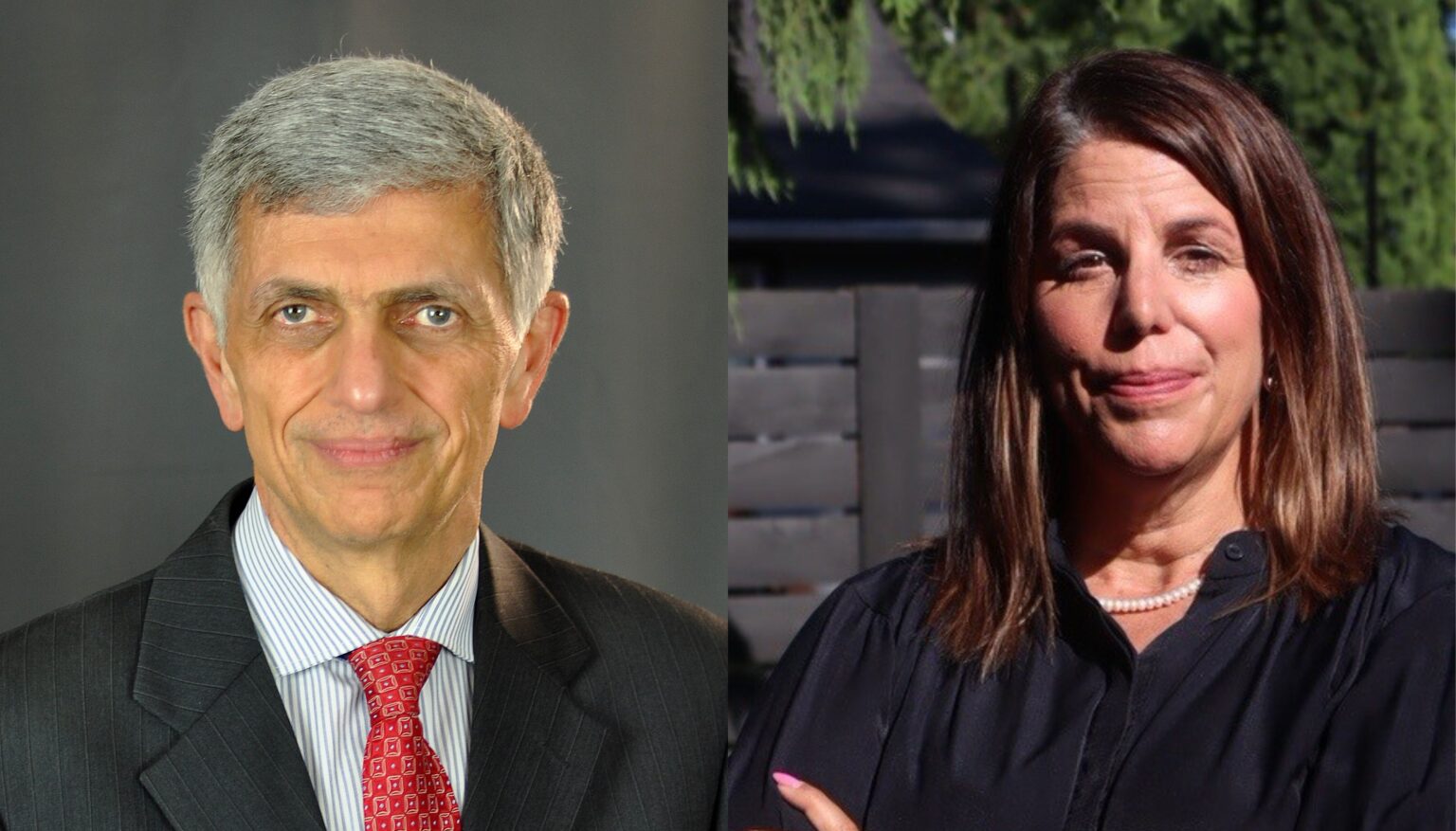State laws trip up lawmakers
Published 11:16 am Friday, June 18, 2021
Oregon’s constitutional quirks and legal loopholes are part of state political lore – along with first-in-the-nation voting by mail and last-in-the-nation curbs on self-serve gasoline stations.
Every time one of the quirks suddenly causes Salem to lurch and seize up, there are promises of action to clean up the constitution as soon as possible. Then nothing much changes.
Trending
Evidence of oddball and archaic portions of the state’s central law were on display again during the 2021 session of the Legislatures.
In a darkened, near empty House chamber, a digital reading machine droned on in a metallic montone for a full day reading the entirety of a bill that primarily changed one word in the name of a state agency.
A sliver of lawmakers walking out in 2019, 2020 and briefly in 2021 in a show of parliamentary muscle allowed by Oregon’s outlier definitiation of a legislative quorum.
A governor who cannot be impeached by the Legislature – the lone state with such a missing mechanism.
Rules requiring lawmakers to travel to the Capitol during a pandemic that has killed over 600,000 in the United States – even though the Salem zip code where the House and Senate meet has the highest infection rate in the state.
The state of emergency giving overarching power to a governor who wouldn’t have been in the office were it not for changes caused by an (year) trip the Snake River.
Trending
Real consequences
The stalling tactics in the House this year ended only after an agreement between House Speaker Tina Kotek, D-Portland, and House Minority Leader Christine Drazan, R-Canby.
Kotek agreed to add Drazan to the five-member House Redistricting Committee, which will draw new political maps for 2022 legislative and congressional districts. The move gave Republicans parity with Democrats on the committee – with six members each.
Senate President Peter Courtney, D-Salem, struck no such bargain and the Senate Redistricting Committee consists of three Democrats and two Republicans.
With the US Census data required to redraw districts six months behind scheduled, the Oregon Supreme Court has given the Legislature a tight window of about five week to get the data, draw the lines and send the maps to the court for approval.
If lawmakers can’t come up with a consensus, then the legislative disricts would be drawn by Secretary of State Shemia Fagan, a former Democratic state senator.
But the congressional maps would go to a special five-judge panel who not only would have to rejigger the five existing congressional districts, but shoehorn in a sixth one the state was awarded on the basis of its growth.
That outcome made two congress members livid, seeing Kotek’s move as increasing the likelihood that Democrats would not be able to use their numerical advantage to shape maps that would favor their party – a practice common among Republican legislatures across the country.
“It was just an abysmally stupid move on her part,” U.S. Rep. Peter DeFazio, D-Springfield, told Politico magazine. DeFazio has survived several tight races in his district.
Rep. Kurt Schrader, D-xx, has the most evenly partisan district in the state and has wanted shoring up in the redistricting plan. Kotek’s solution, he said, was like “shooting yourself in the head.”
It would all be perhaps politically quaint if it were not for the real-world consequences of these oddities.
Democrats who hold 3/5 supermajorities in the House and Senate had to choose to either capitulate on key legislation (as they did in 2019) or allow the entire session to die (as in 2020)
Lawmaking in 2021 in which legislators had to come to the Capitol amid a deadly pandemic was nearly derailed by a twist in state rules unchanged since politicians arrived in Salem by horseback, stage coach or paddle-wheeler.
Beginning with the constitution of 1857 and through over 150 years of statutes, the state’s excesses and omission are famous.
Just about every American knows the state is one of the last places in the nation trying to block the takeover of self-serve gas stations.
It’s dark side is know from the first constitution, which barred black people from the state and carried a penalty of lashings for failure to leave Oregon quickly.
The most visible and publicized have been extracted or watered down. Self-serve gas stations have spread, particularly in the more sparsely populated east of the state. The flogging of free black has been removed and the state belatedly voted for the 14th amendments guaranteeing black the vote, which is had rejected in xx, but became the national law when ratified by enough other states.
Recently, Oregon stopped the practice of allowing non-unanimous jury verdicts in cases that included some murders.
But other constiutional quirks leave political potholes that never seem to get fixed. As one of a half dozen states requiring more than a majority to form a legislative quorum, a small slice of the minority party can bring state government to a standstill.
It is the only state where the governor cannot be impeached. An issue that flared into emergency proportions when Gov. John Kitzhaber started to reconsider his commitment to resign over a brewing influence peddling scandal.
If he had reversed course, the only option left would have been a long recall process that would have stretched well into 2014 and perhaps beyond. A 2018 ballot drive to change the constitution to allow the House to indict and the Senate to convict a governor and remove them from office didn’t get enough signatures to qualify.
Every time one of the quirks suddenly causes Salem to lurch and seize up, there are promises of action to clean up the constitution as soon as possible.
But seven years after the Kitzhaber drama, the law has not changed. Legislation to change the quorum rule was introduced this session, but stalled as House and Senate leaders decided they had higher priorities to push through – like changing the lyrics of the state song.
A constiutional quirk allowing legislation to slow to a crawl in the House this year required a deal that gives Republicans an equal number of seats on one of the committees that will draw new legislative and congressional lines.
Veteran U.S. Rep. Peter DeFazio, D-Springfield, said House Speaker Tina Kotek and her fellow Democrats ceding control of redistricting because they failed year after year to act on changing obsolete rules could cost Democrats – including himself – a chance to control where a new sixth congressional seat will go and how blue or red the population makeup will be.
The Oregon constitution’s “freedom of speech” portion has caused unforeseen headaches because of its breadth. It caused Bend in 2015 to hold up a plan to have large murals of outdoor scenes painted on buildings. If the plan went ahead, the city might then have to allow large painted commercial advertisements since the constitution didn’t distinguish between artistic and commercial speech.
Like many items in the constitution, the signage question hadn’t come up in cities where the art was already up.
Frank Yraguen, who helped administer a mural project in Vale, a town in Malheuer County, was asked about the issue in Bend.
“Quite frankly, this is news to me,” he said. “And I guess I should know these things. I’m a lawyer and a judge.”
But the free speech issue has had major ramifications for attempts to curb campaign contributions. Oregon had one of the least restrictive political fundraising laws in the country. Any person, business or group could give an unlimited amount of money to a candidate or cause – as long as they reported it to the secretary of state. When voters passed campaign finance restrictions, the Oregon Supreme Court struck them down as unconstitutional based on the free speech protections.
The initiative campaign had been led in part by Knute Buehler, a Bend physician who went on to serve in the state House. When Buehler ran for governor in 2018, he accepted more than $3 million from Nike founder Phil Knight.
Buehler said at the time that he had worked to curb money in politics, but the state’s highest court had ruled otherwise. To unilaterally to follow the intiaitive’s intent anyway was to financially disarm in a battle.





